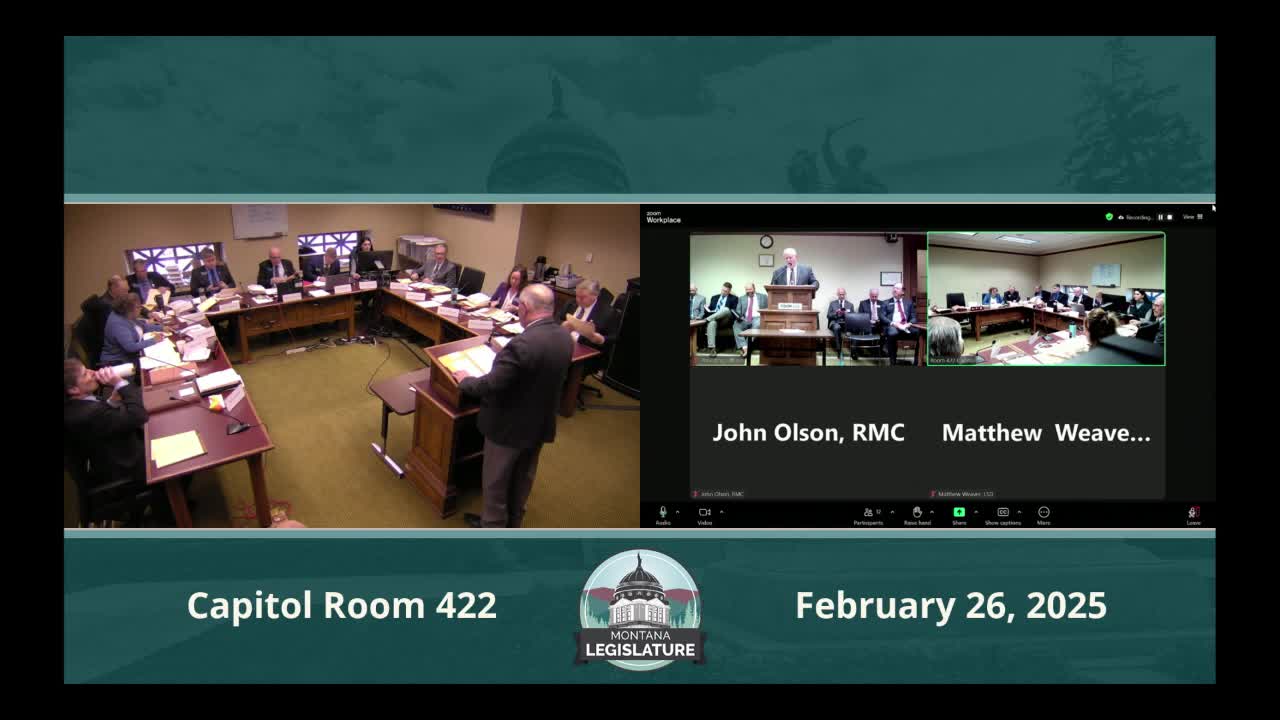Article not found
This article is no longer available. But don't worry—we've gathered other articles that discuss the same topic.
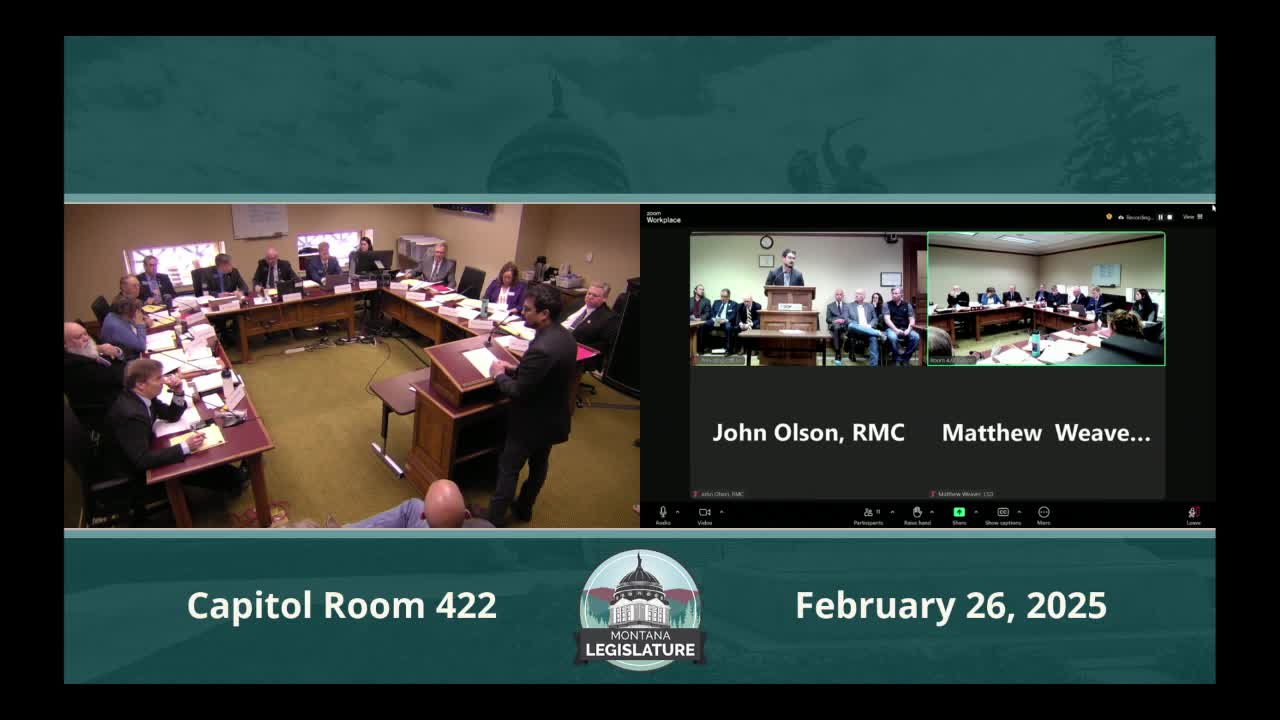
Committee hears compact to let Montana psychologists continue treating patients across state lines
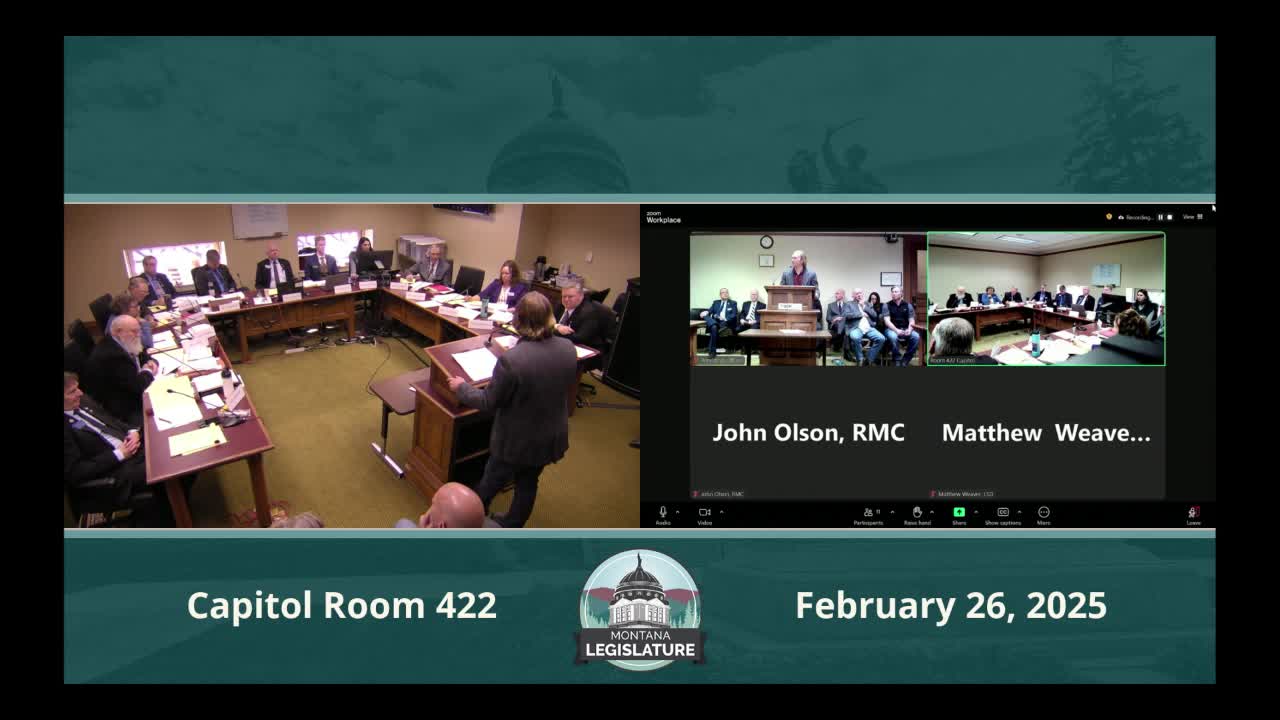
Lawmakers hear bill to modernize Montana unclaimed-property law; bankers and credit unions back changes
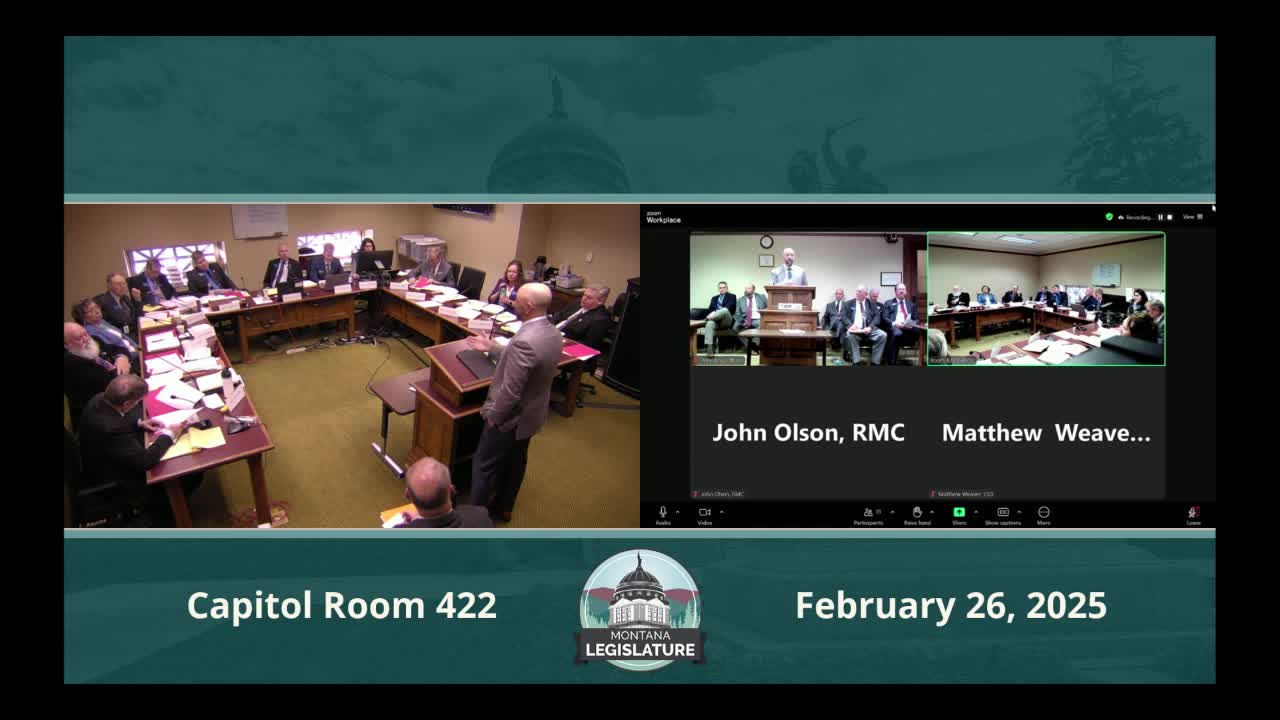
Dentists push loss-ratio bill in committee; insurers warn of higher premiums and reduced market participation
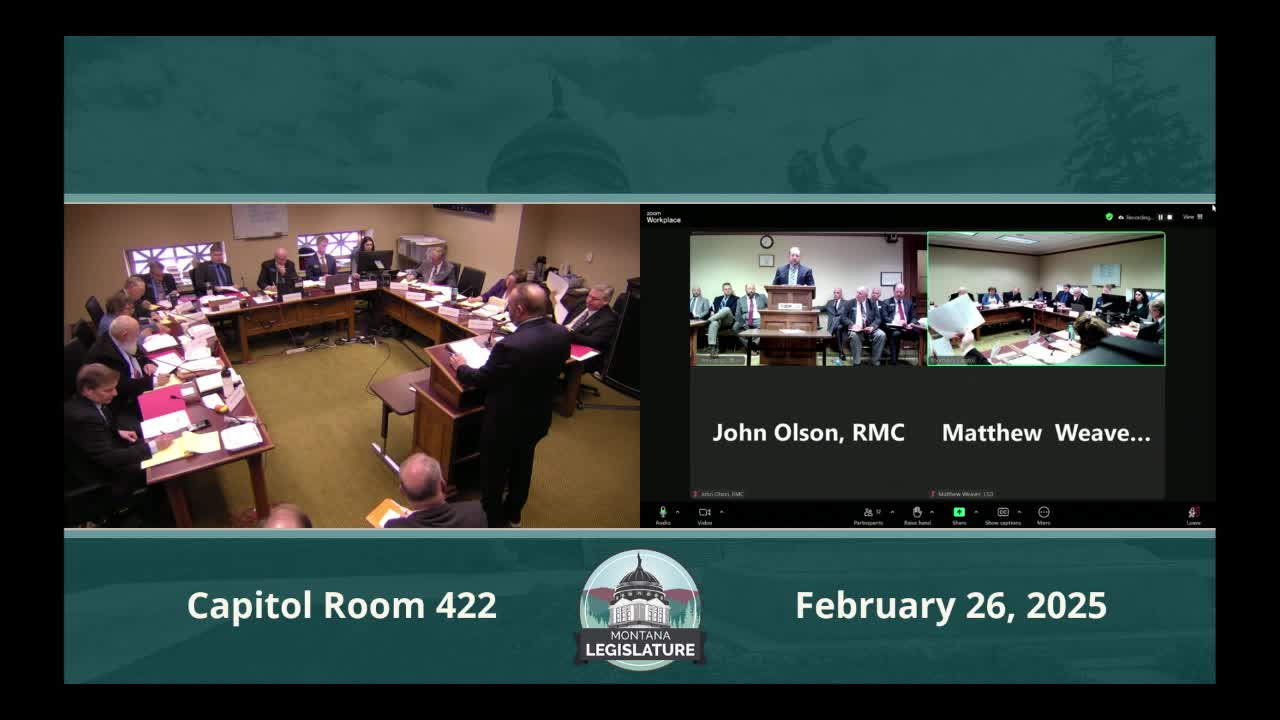
Collision-repair bill clears committee amid insurer concerns about wording and costs
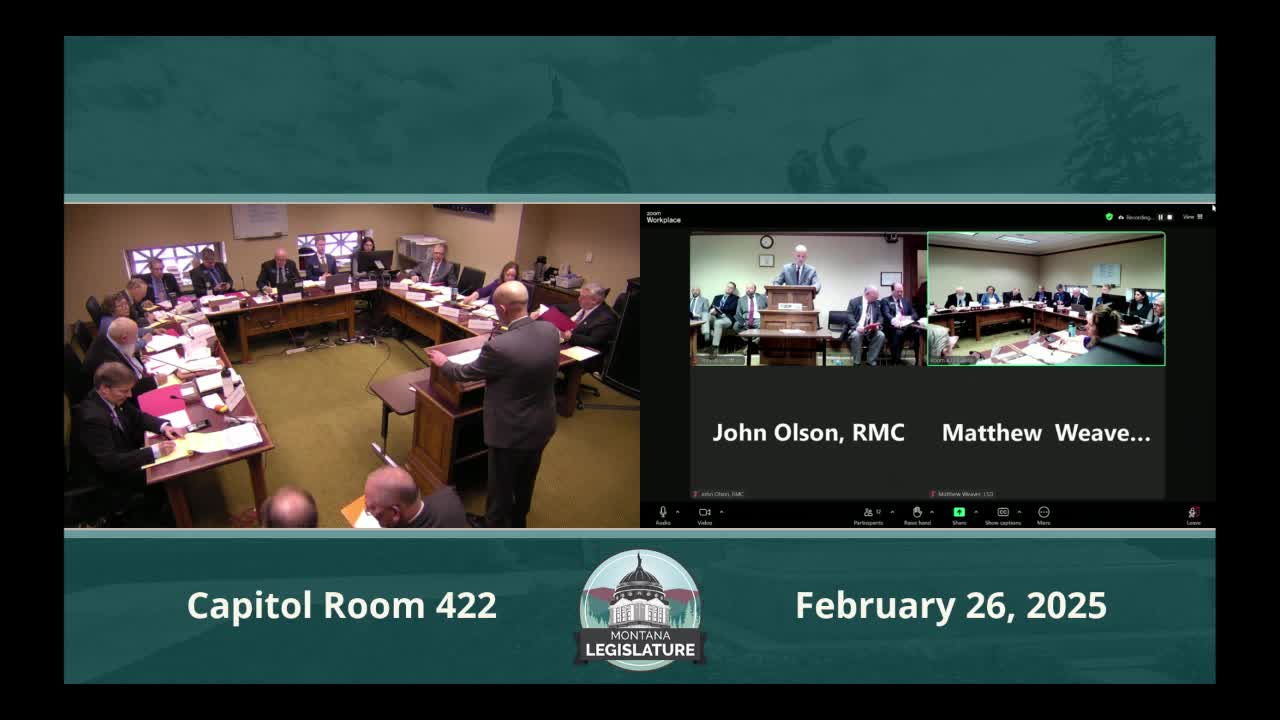
Committee advances bill to simplify lien process for abandoned vehicles and other property
